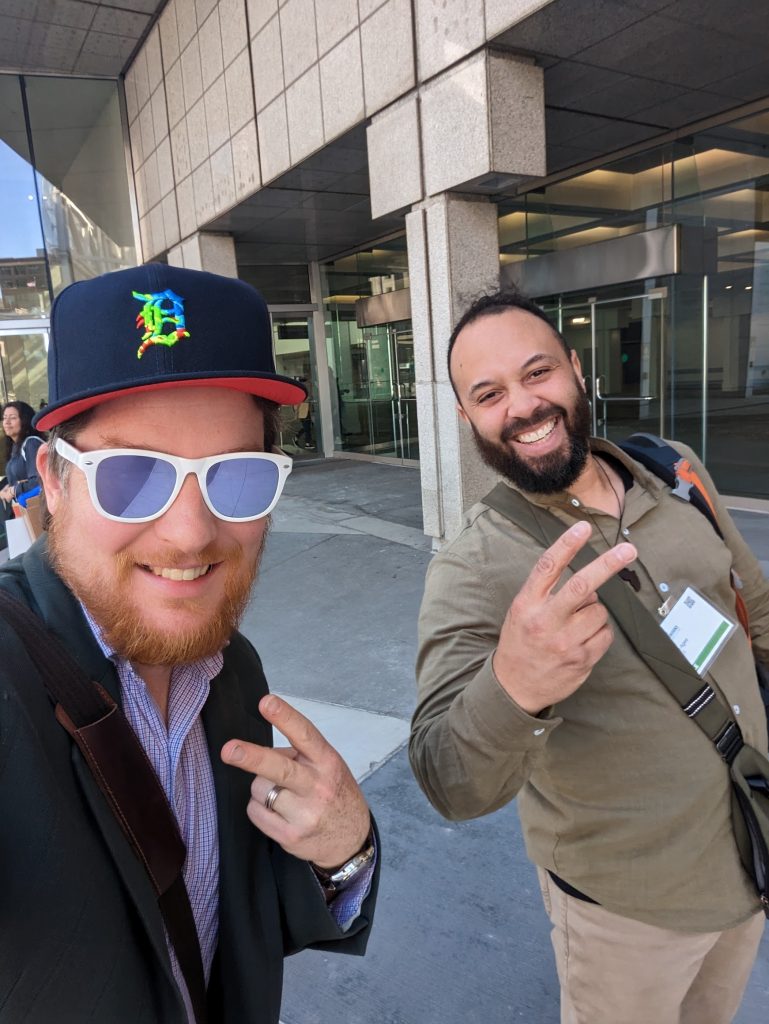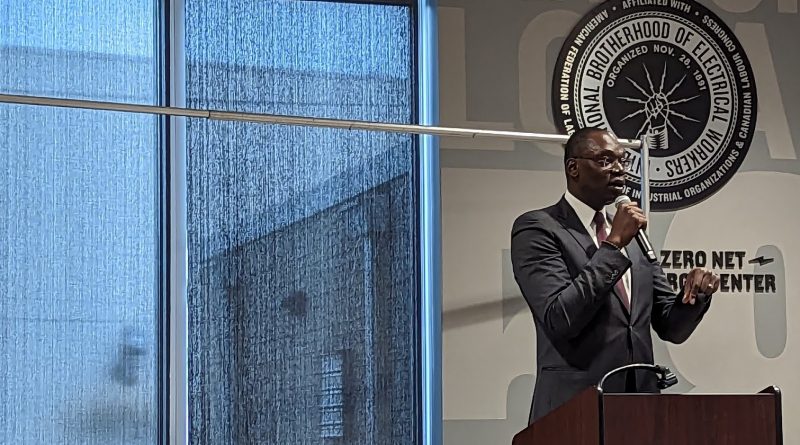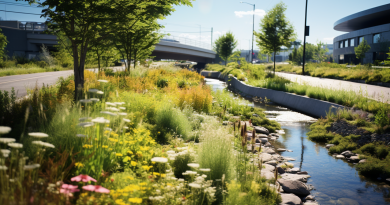MI Healthy Climate Conference: Is It A New Day In Michigan?
Last week I wrapped up a day and a half at Huntington Place in Detroit with SEEL at the MI Healthy Climate conference, hosted by EGLE and friends. It was a nice reminder in the after-COVID-times of the value of in-person, human networking, but also an opportunity to see how Detroit is playing an important role in conversations around decarbonization, energy innovation, and more. I made new friends, ran into old friends, and avoided archnemeses (and bemoaned the dozens of colleagues I’ve had who have moved to more progressive states with better economies). The food was a 10/10, the coffee predictably watery but plentiful, and the vibe generally encouraging.
From Policy To implementation
The MI Healthy Climate conference was the first one of its variety I’ve attended in the past few years, given my time away with Exelon and a hiatus I took during my MBA. I started attending policy workgroup meetings hosted by the Michigan Public Service Commission in 2015 and 2016 after getting involved with Detroiters Working for Environmental Justice when I first moved to Detroit.
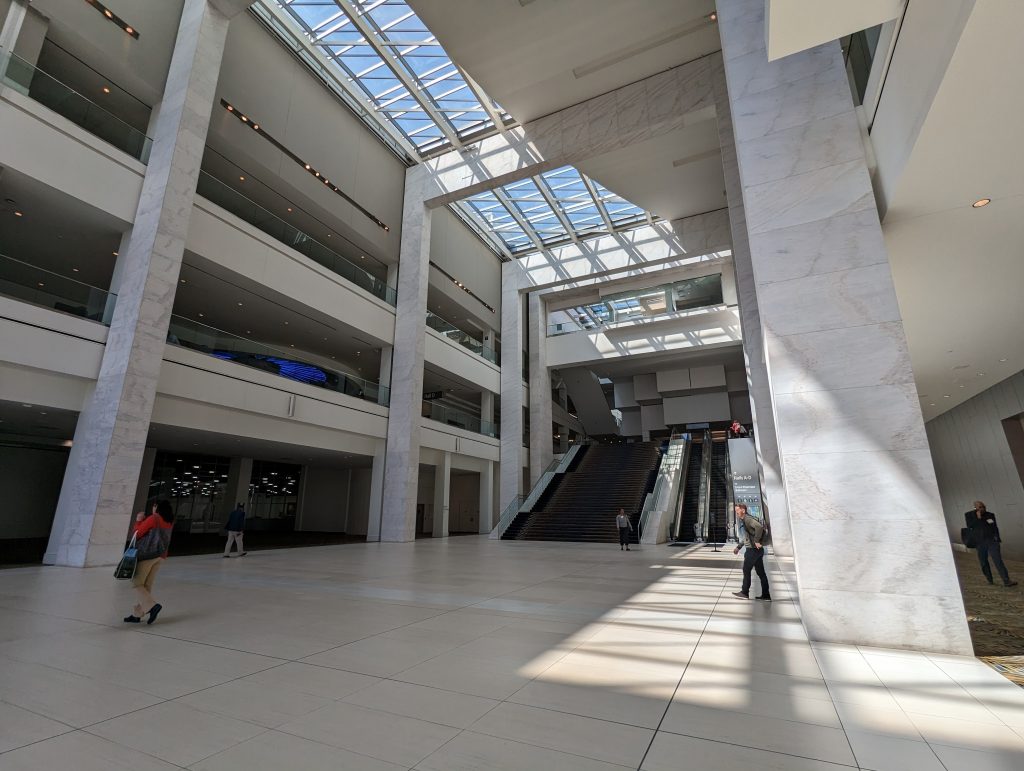
Highlights of the MI Healthy Climate conference included a reception at the IBEW Zero Net Energy training center on Abbott Street, where Lt. Governor Garlin Gilchrist– proudly identifying himself as a neighborhood resident who walked all of two blocks to get to the event- fired up the audience and touted the efforts being done in Detroit and in Michigan at large to build tomorrow’s energy-efficient economy. “We can make Michigan a model […] enviable [by other] states in the country,” he proclaimed proudly, “if and when we choose to work together.”
Gilchrist, whose own political accolades include becoming Lieutenant Governor after a failed bid to unseat city of Detroit clerk Janice Winfrey, has been an active voice supporting civic engagement, equitable decarbonization, and industrial innovation during his time in office. The Governor had a perhaps less rousing keynote speech earlier in the day, but still touted the state’s leadership as being home to the fastest-growing energy sectors in the country. In the ballroom at Huntington Place, Whitmer said:
“This progress proves that we don’t have to choose between prosperity and our environment. As Americans, we can tackle climate change through our ability to innovate. I’m a climate optimist because I know future generations will rise to the occasion, and a climate of hopelessness doesn’t help.”
MIchigan Governor Gretchen Whitmer at the MI Healthy Climate conference
It’s a great sentiment, and it’s valuable! It’s not necessarily aligned with, well, real life, though, which is perhaps a bit frustrating.
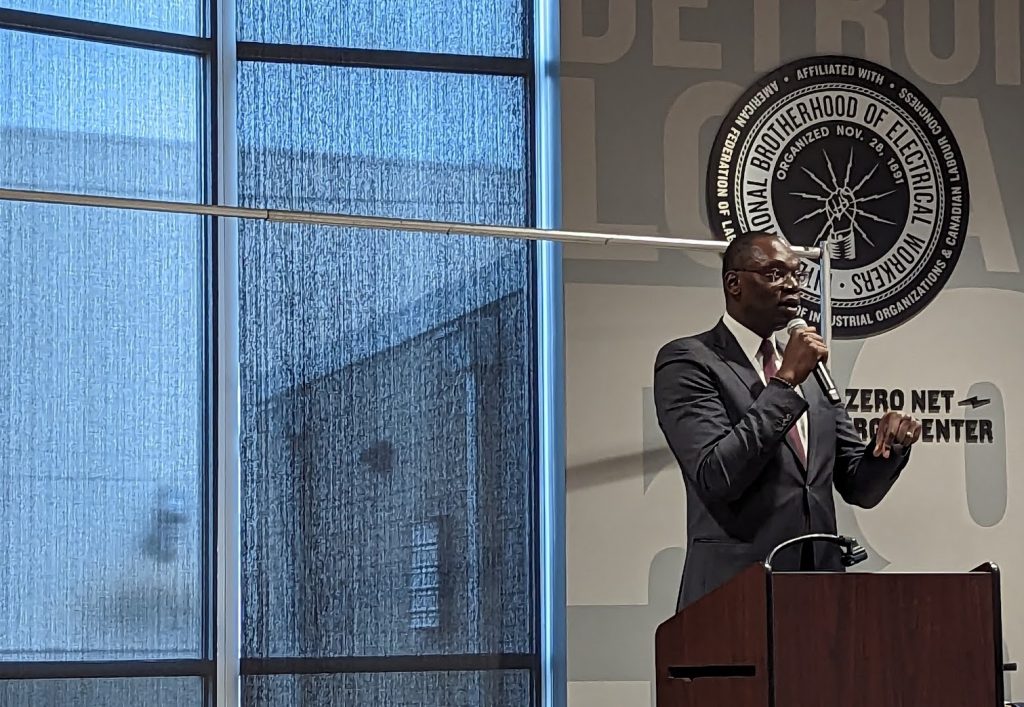
We Still Have Plenty Of Work To Do
If you were wondering where my usual snark went to, here goes: I found it a bit hard to take the governor’s bold proclamations at face value given that the vaunted MI Healthy Climate plan doesn’t really pay attention to the glaring inefficiencies in our state’s built environment– the prevalence of urban typologies that are defined by strip malls, car dependency, and enormously carbon-intensive, energy-inefficient land uses, for example, and the complete lack of options to move between them without a car.
It is something to which I’ve become inured. No one in power seems to particularly care about cities, nor about getting Michigan to any modern paradigm of transit infrastructure. From the State Ministry of Car Advocacy, Judd Herzer– who has served as the Robin to Trevor Pawl’s Batman- pushed a similar angle when he fumbled a question in a panel session about decarbonizing transportation, avoiding any mention, of course, of public transportation and fixed-route transportation in addressing the climate crisis. MEDC and MDOT are both woefully ill-equipped to think about the role that transportation plays in the climate crisis, because their leadership and staff both erroneously believe that it’s possible for us to decarbonize the economy without challenging the car-dependent paradigm.
There is room for hope, though. Katherine Peretick of the MPSC talked about energy storage projects, looking at the Luddington hydroelectric storage project (not exactly new, having been completed in the 70s, but still cool), and highlighting thousands of megawatts of new photovoltaic generating capacity that is in the pipeline to be added to the state’s generation mix by the end of the decade. And I got to see a pretty impressive display from Metropolis Cycles, Detroit Bikes, and Electric Avenue— all focused on the future of electric bicycles in the Motor City, including Detroit Bikes’ own made-in-the-D model!
Once again, I don’t want it to sound as though I am opposed to electrifying the vehicle fleet. I am in favor of it! I just need us to be honest with ourselves and with each other about our reliance on a thoroughly carbon-intensive mode of transportation, and about how our built environment makes that problem that much worse.


